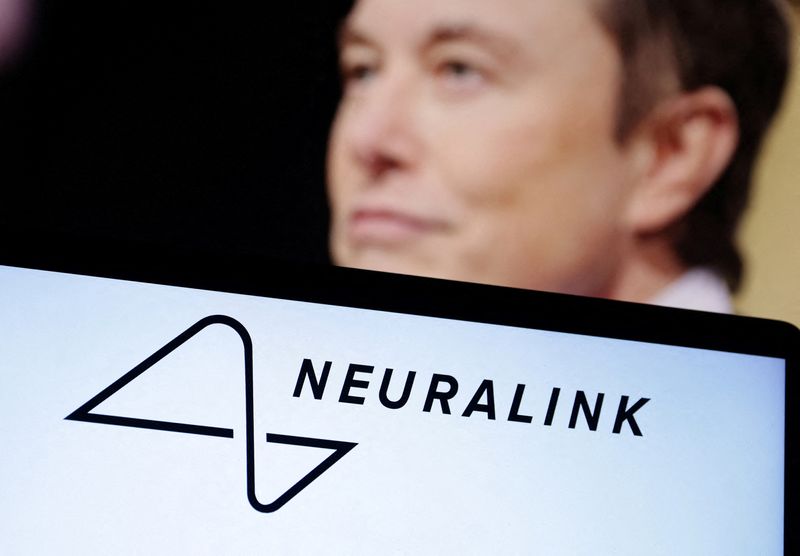- cross-posted to:
- [email protected]
- cross-posted to:
- [email protected]
RIP to whoever was desperate enough to try it. Hopefully they don’t die as painfully as the Neuralink monkeys did.
Imagine offering up your own brain (and probably life) for a
betaalpha version of a prototype from a guy who’s products have never left the beta stage?As a software engineer myself there are certain things I know I never want to work on. Things like heart pumps and diagnostic machines where firmware needs to be so incredibly precise that one fuckup and people literally die. And these people trust the guy who makes Teslas. They’re fun to drive… I wouldn’t stick one in my brain though.
So what if you had the capability to be good at that heart pump software, and by not doing it you’re letting in someone who’s not as good as you at it.
Not trying to trap you or anything, but at a certain point somebody’s gotta do that high stakes stuff.
Maybe you know you’re not good at that kind of precision stuff, and I respect that. But maybe the difference between you and the guy who did step up to do that work isn’t that he has more skill, but merely less humility.
Maybe you, the one scared shitless of the ramifications of a mistake, are the one for that job.
Maybe. I’ve just shipped too many bugs to prod to trust myself. But you’re right for every senior engineer who is paranoid about that there’s 100 devs who will ship it and then take vacation for a week.
Perhaps the reason you ship bugs to prod, is because you know it doesn’t matter. Maybe your bug rate isn’t a pure function of the coding task complexity, but is context-dependent on the goal being coded toward.
I don’t even know why I’m pushing you on this to be honest. Trust your gut man
Lol I’m taking it as a motivational speaker, lol you just may be right. Who knows, but you cheered me up
There’s quite a difference between rapid prototyping on software/hardware versus the human body.
Musk’s approach to developing engineering advances has worked well in the software, aerospace, and vehicular industries. Development on inorganic things is much more predictable, we can isolate variables, and it is easier to understand cause & effect. If you screw up some software on an inorganic system, your program might crash, your rocket might explode, or your car won’t start. These risks can be anticipated and costed fairly well, therefore rapid prototyping has an acceptable risk/reward ratio in that environment.The human body, on the other hand, is an extremely complex system that we still don’t fully understand. Each person is a unique variation on the model and that changes over time depending on upbringing, diet, exercise, and life experiences. Applying the same engineering approaches from inorganic industries has a much higher risk once you cross into the medical realm. If you have errors in a medical situation, you risk sickening, injuring, or even killing a person. The risk/reward ratio is skewed towards ensuring that human life is protected at all costs.
Using SpaceX as an example, the first three launches failed spectacularly and a fourth failure would have ended the business but fortunately the fourth test was a success. If you’re suggesting that we apply the same risk-taking to Neuralink, are you suggesting that it’s acceptable for the first three patients to die, as long as the fourth is a success?
I don’t know what it is about Teslas, but everytime my wife and I get in one, we start feeling carsick after a while. It’s only with Teslas too.
Still, as much as I’d never buy a Tesla, it is a functional car for the most part, and worst case you turn on the hazards and pull over (if the car doesn’t actively try to kill you). A brain implant sounds like an absurdly horrible idea. What’s the best outcome of one of these anyway? Ads playing in your thoughts?
There is a well known fault in Teslas where the front linkage breaks, and that’s a lot more catastrophic than just putting on hazards and pulling to the side of the road. Worse still, this can happen at less than 100 miles driven, and Tesla won’t cover it under warranty: https://www.cnbc.com/2023/12/20/tesla-blamed-drivers-for-failures-of-parts-it-long-knew-were-defective.html
Well I guess I’m adding that to my list of reasons never to buy a Tesla. Can’t say I was ever considering one before though.
One thing about at least the Model S I drove once is that it doesn’t really coast. It’s either accelerating or braking.
This was 2016 so maybe that’s changed. But the Tesla I drove seemed to have zero chill. The moment my foot stopped pressing the gas, we were actively slowing down. It felt really tense to me.
So basically its acceleration profile over a given trip would be different than most cars, meaning confusing novelty for your inner ear.
That’s not just a Tesla thing, but it is more pronounced in Teslas. It is an EV thing, usually referred to as one pedal driving. It’s great because you get battery regeneration, but it for sure takes some getting used to. You have to think of the accelerator more as an analog stick than just a go pedal. Personally I prefer it, but a lot of people don’t like it.
When I drive a good 50% of the time is me coasting. Like, imagine skateboarding but you have to be kicking or stopping, no coasting allowed. Whole different feel.
Seems like it should be configurable. Because you don’t really get that energy back; you’re losing your kinetic back into electric at a loss. I want that speed.
Maybe it’s just a few days before the foot learns to hold the pedal for a good steady speed. It’s required in a gas car too, obviously, always need gas to maintain speed in atmosphere, but it sort of disappears from view.
Oops, no that’s it. It’s not the steady-speed driving where it must have bothered me, but all the times I just let off the gas because I do need to start slowing down, but don’t want to brake if I don’t have to.
In the Tesla, I’d let off the gas expecting to slow down at say 1 mph per second, and instead I’d be slowing down at 3 or 4 mph per second.
Eh, I dunno. Just felt wrong. Definitely felt cool in terms of power though. Instantly recognizable as “oh this next century shit”. In a new league that didn’t exist with gas.
Seems like it should be configurable.
It is in some cars, just not Teslas. Kias have different levels you can set. In my ID.4 I can set it to coast or brake when letting go of the pedal. I was not a fan of the Kia method, but I think the car I test drove had some issues. My friend has an EV6 and enjoys the granularity of it.
Definitely felt cool in terms of power though.
Yeah, that is the cool thing about EVs. Instant torque. Obviously Tesla goes for that ridiculous acceleration, but all EVs have that to some extent. Hell, even the Leaf has that feeling compared to other small cars.
Feels like there needs to be a larger central zone for the pedal where the car just maintains speed
deleted by creator
If it were anyone but Musk’s company I might be excited at the prospects of this tech.
Yeah, I don’t like a guy who consistently tries to embody “move fast, break stuff” in the places I least want that to be the case.
deleted by creator
What about the ones that do preserve life? Like pacemakers? How long before we see all these anti consumer corporate BS panning out on those?
deleted by creator
Good rule for life… NEVER let someone cut you open unless it will save your life or drastically improve it. I was thinking along the lines of quadriplegics regaining autonomy than just futurisms. I could get excited about something that gives people their lives back. Would that ever come out of a company run by Musk? I highly doubt it. But if it weren’t him or other tech bros there could be a chance that it could turn into something that helps people.
I don’t know but I’d bet the person who got that implant is in a desperate situation without much to lose.
I know neuralink’s first focus is on things like deep brain stimulation, which can take a person from having almost constant tremors and rictus, to be able to use their body. So I’d wager this particular implant probably has some potentially huge upside for someone who’s living in hell already anyway.
I hope so!
It’s one of the things that potentially prevent the technological singularity. That’s undoubtedly why the self-important Musk has an interest in it.
Come gather ‘round people
Wherever you roam
And admit that the waters
Around you have grown
And accept it that soon
You’ll be drenched to the bone
If your time to you is worth savin’
And you better start swimmin’
Or you’ll sink like a stone
For the times they are a-changin’
Not me, this will lead to malware installed in the brain.
You think popups are bad now?
Wait till you get them in your dreams.
I fully agree with you.
Elon should be first in line to demonstrate how safe and side effect free this technology is!
I have a lot of negative opinions about Steve Jobs - but I admit he was one CEO that would have been so specific about the technology and so determined to get it perfect the first time that I could see him doing it to himself first.
It’s that same determination that he told himself that he could cure his own cancer.
That’s true. I could see Steve Jobs doing it.
Hell, on a fucking stage even. “This … is a surgical robot. Our first patient will sit down in here in just a minute, and you’ll be able to see the first device implantation ever”
“Hey Siri, are you ready?”
“I’m ready Steve. Are you?”
“No time like the present.”
“Please have a seat”
“This is what I found on the web for stop Siri I’m feeling too much pain please stop oh god no no nooooooooo!”
Why in the actual fuck did the FDA approve human trials?
Do they get Elon’s dumbass tweets projected in their mind, now?
So they definitely haven’t, then
The Other Shoe: the first recipient was Mitch McConnell, and his episodes lately have been during firmware updates.
McConnell’s brain waves endanger other systems with runaway random viruses
Maybe the subject can be uploaded to a Tesla Bot as a backup
Isn’t this the plot to Terminator Salvation?













